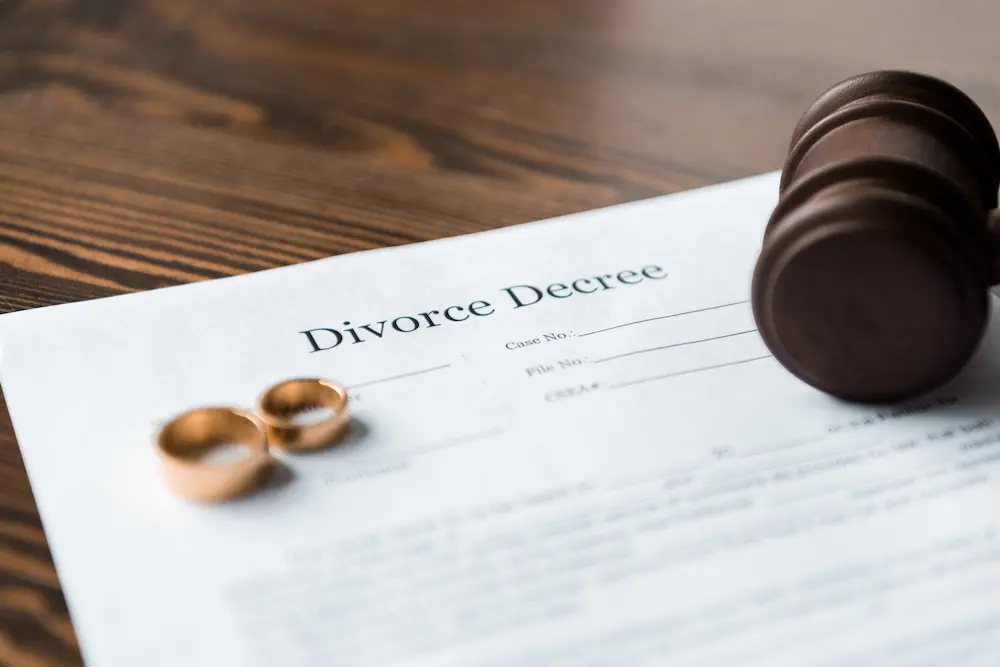Having a partner with physical or mental impairments can make it challenging to maintain a healthy relationship. If the caregiver’s spouse finds the responsibilities too much to bear or believes the couple cannot remain together, divorce may be the only option.
Divorce rates are higher for couples when one partner is disabled, with studies finding rates as high as 86%!
Divorce is difficult for everyone, regardless of ability. There are ethical, financial, and societal factors to consider.
Reasons for Divorce
There can be several reasons why people choose to divorce a disabled spouse, such as:
Loss of Intimacy
Disabled people face more challenges in maintaining intimacy, which can lead to divorce.
Studies have shown that non-disabled spouses lose interest in their partner after their disability.
Additionally, emotional barriers, such as low self-esteem, make staying confident in intimate situations challenging for a disabled partner.
Financial Difficulties
Disability can add to a couple’s living costs, such as medical care, mobility aids, and other expenses related to managing the disability, making it hard to make ends meet, especially if the disabled spouse doesn’t work.
Irreconcilable Differences
People with disabled spouses may have unsolvable differences, such as one partner feeling overwhelmed by caring for a disabled spouse. In contrast, the other partner may feel unsupported or dislike the consequences of a disability.
Effects of Divorce on a Disabled Spouse
Going through a divorce process can put extra strain on the disabled spouse, such as
Loss of Financial Security
After a divorce, paying for additional support services or medical care may be difficult for anyone. Still, it can be challenging for disabled people who cannot earn a living.
Loss of Emotional Support
A divorce’s emotional toll can be challenging, but it significantly affects a disabled person who feels emotionally vulnerable. They might rely on their partner for emotional support, and the loss can be devastating.
Difficulty Obtaining Adequate Care
A full-time caregiver spouse’s loss of financial support might devastate a disabled partner. They may find looking for other care providers and professional caregivers time-consuming and expensive.
Health Concerns
Stress taken after divorce can make things worse for disabled people, and the effects can be more pronounced, such as worsening their condition and their inability to get the treatment they need.
Legal and Financial Considerations
Having one spouse with a disability might exacerbate the already complex process of getting a divorce. You can still file for divorce, but legal formalities must be fulfilled accordingly.

Having one spouse with a disability might exacerbate the already complex process of getting a divorce. You can still file for divorce, but legal formalities must be fulfilled accordingly.
Spousal Support
Your spouse may have a valid claim to pay spousal support (also known as alimony).
Permanent alimony is meant to help the lower-earning spouse get back to the same level of living they had while they were married if they cannot work for themselves. Permanent alimony is usually reserved for 17-year marriages.
Whereas in the case of temporary, the spouse has to pay alimony for a short period for financial support during the divorce process.
The alimony payments can depend on many variables. The time of marriage typically increases alimony payments. For instance, alimony may be awarded to the spouse for a specified number of months of marriage, up to sixty percent of the total monthly amount.
Child Support and Custody
The court determines child support and custody based on the parent’s income and the child’s needs and expenses, including government assistance and benefits.
All custody decisions during the divorce must consider the child’s best interests. Joint custody is awarded in most divorce cases so that both parents may continue to be involved in their child’s life after the divorce.
Factors can cause complications if one parent is disabled, especially with a mental disability. However, a parent with a physical impairment can be granted child custody.
Health Insurance
In addition to alimony, the ex-spouse has to provide health insurance to disabled spouses.
The most important details are that disability benefits or the ex-spouse can provide health-related support through COBRA, Medicare, and Medicaid.
COBRA is a legal right for disabled spouses to keep up their health insurance during the marriage and up to 36 months post-divorce, while Medicare provides health insurance to people over 65 or who have already paid SSDIs.
Medicaid is available if the disabled spouse has fewer finances or assets.
Effect on Government Benefits
Benefits for the disabled may be obtained via either Social Security Disability Insurance (SSDI) or Supplemental Security Income (SSI). Both need to meet certain conditions.
Security Disability Insurance (SSDI)
These disability benefits are for those who have paid into the Social Security system through payroll taxes and can receive SSDI benefits. SSDI may be covered as income toward spousal support and child support payments.
- On their earnings: A person’s SSDI benefits are not changed based on their work record.
- On spouse earnings: If a disabled person has been receiving benefits on their spouse’s work records, they will still qualify for SSDI benefits if their marriages lasted ten years or more. If married for fewer than ten years, they may only qualify for these benefits if they fulfill additional criteria.
Supplemental Security Income (SSI)
SSI benefits may be available to handicapped people who have not worked long enough to qualify for SSDI.
Due to the needs-based nature of SSI, a person’s disability benefits may rise due to a divorce; however, garnishment of Social Security benefits for spousal or child support is prohibited.
Division of Assets
Property splitting is done on marital property, with some states using a 50/50 split and others adhering to the notion of “equitable division.”
The court examines several factors to decide if a different division is needed. For example, a spouse’s disability may require a more significant percentage of the marital assets. An experienced divorce lawyer is the only way to get a good result.
Like disabled spouses, adult disabled children can also receive assistance from social security benefits. Learn about what these benefits are and how to apply them.
Additional Support
Even if you are divorced, you still need to support your ex-spouse, which might even reduce your financial burden.
For example, if your partner is eligible for Social Security payments, help them complete the paperwork or raise their amounts if they already get benefits.
Conclusion
It may be more challenging to seek a divorce if one of the spouses has a disability. All matters, such as alimony and social and legal support, must be considered to provide ease to a disabled individual.
If you’re getting a divorce, hiring a skilled lawyer who can go through all the possible outcomes and how they can affect your money is your best bet.

